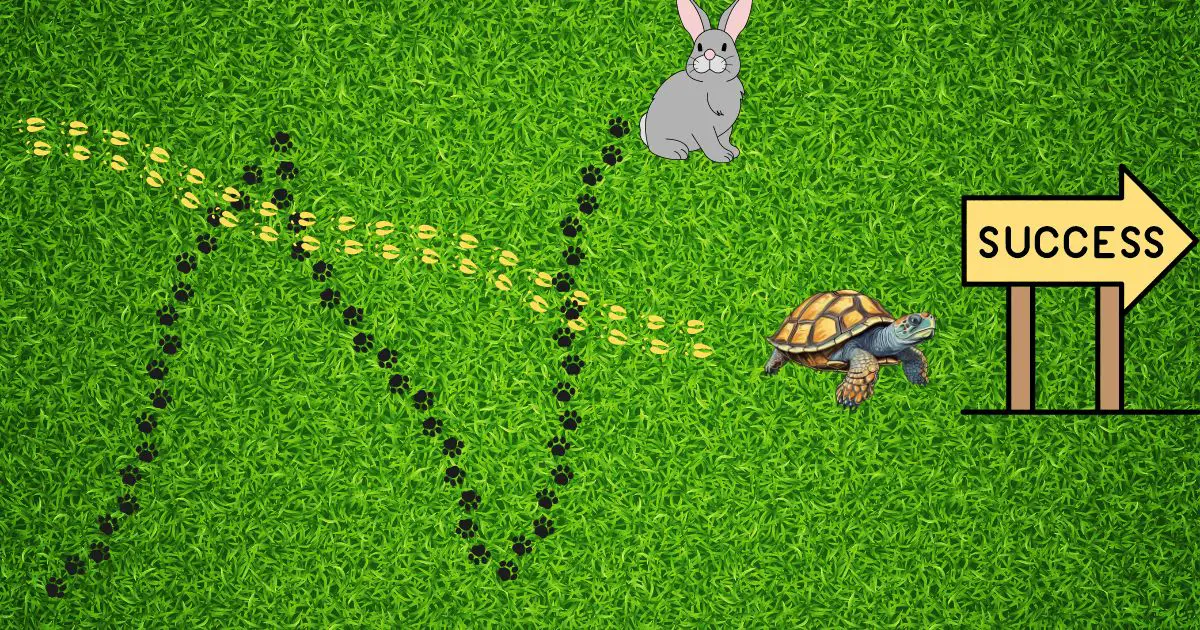Stressing out during study sessions, especially when learning new material or approaching exams, is a common experience for many. However, adopting a better study method can effectively reduce stress and alleviate worries. Exploring different approaches to learning, such as time management, and creating a well-organized study schedule, can make the learning process more enjoyable and less stressful.
Excessive worrying and intense studying can lead to stress when it comes to studying. Additionally, poor time management and cramming before tests contribute to higher stress levels. By evenly spacing out study sessions, you can alleviate stress, enjoy the learning process, and enhance information retention.
Personally, adopting better time management has helped me secure higher grades without feeling overwhelmed. It promotes a sense of refreshment and ensures good sleep before the night of a test, contributing to a healthier and more effective study routine.
Undeniably, stress is intrinsic to the human experience. For many, studying often acts as its prime catalyst. With this in-depth exploration, we probe into various facets of this phenomenon, our aim being not only to explain reasons behind the stress associated with learning but also to crucially provide guidance on how individuals can navigate through and alleviate such strain.

The Pressure to Excel
The education system relentlessly emphasizes grades, thereby narrowly defining academic success as a mere sequence of letters on your transcript. This biased view induces palpable stress within students. They bear the weighty burden of high-stakes exams and an unending quest for top marks. Research found that constant pressure to achieve high grades triggers stress responses which in turn affects not only academic performance but mental well-being also.
Societal expectations significantly contribute to the stress students experience. Beyond academic institutions’ walls, a prevailing notion links success exclusively with academic achievements. This perception magnifies fear and anxiety. It’s an external pressure that augments the inherent stress of studying.
Consequently, this societal pressure intensifies, creating a mindset in which individual accomplishment becomes society’s sole determinant for gauging personal success. This underscores our urgent need to confront and ameliorate these external pressures, critical steps toward cultivating a healthier perspective on education.
- Consideration: Acknowledging the impact of societal expectations on stress is crucial for students. Balancing personal aspirations with external pressures can help create a more realistic and sustainable approach to academic pursuits.
- Caution: Excessive focus on grades can lead to a narrow perspective on success, potentially hindering personal development and holistic growth.

The Fear of Failure
Academic settings often stigmatize failure, which amplifies stress levels in students. The culture deeply ingrains a fear of failure that significantly impedes learning and personal growth as it acts as an imposing barrier. This goes beyond individual experiences. It shapes the collective mindset within educational institutions towards an aversion to risk-taking and innovation.
Shifting the focus, students themselves set unrealistic standards which further intensify their stress. Societal expectations or personal aspirations propel these standards into becoming stressors. The pursuit of perfection can overshadow learning’s joy. Research findings emphasize that striking a balance between excellence and well-being is paramount to alleviating study-related stress.
- Consideration: Encouraging a positive attitude toward failure as a learning opportunity can help shift the mindset, reducing the fear associated with setbacks.
- Caution: Unrealistic standards can lead to burnout and compromise mental health. Recognizing one’s limits and embracing imperfections is essential for sustainable academic success.
Coping Mechanisms and Strategies

Time Management
A robust time management strategy is the foundation for reducing stress during study sessions. Going beyond merely creating a realistic schedule, by breaking tasks down into manageable chunks and integrating regular breaks, provides optimal results. Furthermore, understanding your peak productivity hours can significantly enhance these study sessions. This tailored method of time management doesn’t just boost output but also cuts down on deadline-induced stress.
Mindfulness and relaxation techniques, in parallel, bestow profound benefits for reducing stress. Activities like meditation, and deep breathing even more so along with progressive muscle relaxation not only calm the mind but also enhance focus. Studies underscore their positive impact on overall well-being. This elevates them to valuable tools used in managing academic-related stress.
- Consideration: Tailoring time management techniques to individual preferences and energy levels enhances their effectiveness in stress reduction.
- Fact: Regular breaks during study sessions are not just for leisure but have been proven to enhance concentration and cognitive performance.
Setting Realistic Goals
Maintaining a healthy approach to studying fundamentally requires the establishment of achievable goals. Unrealistic expectations potentially induce burnout and escalate stress levels. However, research suggests that setting realistic, incremental objectives not only fosters accomplishment but also mitigates the overwhelming intensity inherent in academic pursuits. Furthermore, goals must encompass not only academic orientation but also personal growth and well-being.
Consider that the relentless pursuit of perfection may indeed sabotage your joy in learning. Hence, striking a balance between aspiring for excellence and practicing self-compassion becomes imperative to forge an academic journey that is both sustainable and fulfilling.
- Consideration: Integrating short-term and long-term goals fosters a sense of purpose and direction, aiding in stress management.
- Fact: Studies show that individuals who set specific, measurable, achievable, relevant, and time-bound (SMART) goals are more likely to succeed in their academic endeavors.

The Role of Support Systems
Cultivating a robust support system critically aids in managing the inherent stress of studying. Familial encouragement and peer camaraderie, offering emotional support and perspective, necessitate distinct role recognition within each supportive structure. Individuals boasting strong support systems typically encounter reduced academic challenge-induced stress, thus underscoring the significance of nurturing these alliances.
Another significant aspect of managing academic pressures is seeking professional help. Individuals can acquire effective coping mechanisms and strategies to address study-related stressors through counseling or therapy. Thus, underlining its importance. Complementing familial and peer support is the pivotal role played by specialized guidance from professionals, a service uniquely tailored to individual needs.
- Consideration: Recognizing the unique contributions of family, peers, and professionals in a support system ensures a holistic approach to stress management.
- Fact: Studies indicate that students who actively engage with support systems have higher levels of resilience and adaptability to academic challenges.

The Role of Environment
Significantly impacting stress levels, the environment in which you study requires crafting an optimal study space. Factors to consider include lighting, noise levels, and organization is crucial. A well-designed study environment not only fosters concentration but also reduces stress. A conducive study atmosphere thrives from adequate lighting, minimal distractions, and a comfortable chair.
Moreover, personalizing the study space with motivational elements can elevate the overall experience. It transforms studying into an enjoyable and less stressful activity.
On another note, the physical arrangement of study materials also influences our efficiency. Organizing notes, books, and even resources in an orderly manner not only reduces the search time for specific material. It promotes a streamlined workflow. Furthermore, when we establish a consistent study environment, this bolsters positive habits in our academic approach and contributes towards greater relaxation and focus on tasks at hand.
- Consideration: Assessing and optimizing the study environment based on personal preferences enhances comfort and concentration.
- Fact: Studies show that individuals who study in well-organized and well-lit spaces tend to experience lower stress levels and higher productivity.

The Impact of Sleep on Studying
The apparent connection between studying and stress often overlooks the role of sleep in this equation. Quality sleep significantly impacts cognitive function, memory consolidation, and stress management. It is a crucial factor. The research proposes that prioritizing consistent and adequate sleep could boost focus.
Furthermore, during study sessions, information retention might improve for these individuals. A mind that has been adequately rested is more proficient in managing the difficulties and stresses linked to academic endeavors.
Moreover, the body’s natural circadian rhythm aligns with a consistent sleep schedule. This promotes overall well-being. Understanding the interconnectedness of sleep, stress, and studying, especially emphasizing healthy sleep habits is crucial to enhancing academic performance. It is paramount for our general welfare.
- Consideration: Establishing a regular sleep routine can positively impact cognitive abilities, aiding in more effective and less stressful study sessions.
- Fact: Lack of sleep can impair memory consolidation and cognitive function, hindering the learning process.
Digital Detox for Mental Clarity
In an era dominated by technology, the constant influx of notifications and digital distractions can contribute to heightened stress levels during studying. Implementing a digital detox strategy involves minimizing exposure to electronic devices and social media platforms during study sessions. Reducing screen time can lead to improved focus, reduced anxiety, and enhanced overall mental clarity.
It is crucial to create specific periods for focused, uninterrupted studying without any digital distractions. By turning off notifications, using productivity apps, and setting clear boundaries for technology during study sessions, we contribute towards a more mindful and less stressful learning experience.
- Consideration: Integrating short breaks for checking messages and notifications can help strike a balance between focused studying and staying connected.
- Fact: Studies show that individuals who engage in regular digital detox experience improved concentration and reduced stress levels.
The Art of Reflection
In the context of studying, reflection wields power as a tool for personal growth and stress management. Thus, we should encourage students to partake in reflective practices post-study sessions. This not only enhances self-awareness but also fosters a positive mindset.
Engaging in critical introspection on your learning process, identifying strengths, and acknowledging areas that you can improve and set the foundation for an academic approach marked by resilience. By setting realistic expectations for the future, you pave the way for reduced stress when dealing with challenges.
Incorporating reflective practices, moreover, fosters a profound understanding of one’s learning style and preferences. This allows for an adaptation, a strategic alignment with individual needs. The art of reflection not only transforms studying but also embarks on a continuous journey through learning; it mitigates the perpetual stress associated with academics.
- Consideration: Journaling or creating a reflective diary can be effective tools for documenting insights and observations during the learning process.
- Fact: Studies indicate that students who engage in regular reflection experience enhanced metacognition, leading to improved study strategies and reduced stress.
The Role of Exercise in Stress Management
We have a well-established understanding of the link between physical activity and stress management. When one integrates regular exercise into their routine, it profoundly impacts their mental well-being. Consequently, this decreases the levels of stress experienced during studying. Moderate engagement in physical activity releases endorphins, our body’s natural stress relievers, which foster positive moods and minimize anxiety.
Regular exercise not only immediately reduces stress but also yields long-term benefits for cognitive function and overall health. A weekly routine that incorporates activities like brisk walks, yoga, or gym sessions offers a holistic approach to managing stress during academic pursuits.
- Consideration: Finding enjoyable forms of exercise contributes to consistency, making it easier to maintain a regular fitness routine.
- Fact: Studies show that individuals who engage in regular physical activity report lower stress levels and improved mental well-being compared to those with sedentary lifestyles.

The Impact of Personal Learning Styles
Unraveling the complexities of stress associated with studying requires an understanding of individual learning styles. Each person possesses a unique approach to acquiring and processing information. Recognizing this diversity which is a key element in our study experiences is crucial.
Aligning personal study techniques with your particular style not only enhances comprehension but also retention. This subsequently reduces both cognitive load and the stress invariably tied to rigorous academics. Adapting study methods to cater to the preferences of auditory, visual, or kinesthetic learners fosters a more personalized and effective learning environment.
Acknowledging the influence of learning styles stretches beyond mere study techniques. It involves selection and subsequently, optimal choice of learning style. It extends to determining when during a day is most productive for study sessions of materials for studying and forming ideal groups or partners in academia.
Individuals who embrace a personalized approach to learning can curate their unique strengths and preferences into an effective study routine. This ultimately reduces, often eliminates, the stress that frequently accompanies standardized methods of studying.
- Consideration: Regular self-assessment of learning preferences aids in refining study strategies and optimizing the learning experience.
- Fact: Studies show that individuals who align their study techniques with their learning styles report higher satisfaction with their academic performance and reduced stress levels.
Embracing Technological Tools for Effective Studying
The integration of technology in the digital age can revolutionize the studying experience. It offers innovative tools, leveraging educational apps, online platforms, and interactive resources, to enhance comprehension and alleviate stress. This transformation extends beyond traditional study methods. When students incorporate technology into their studies, a more engaging process unfolds, facilitating not just collaborative learning but also providing real-time feedback.
Moreover, employing productivity tools aids in managing time efficiently. They facilitate the breakdown of complex subjects into manageable tasks. Virtual study groups and online forums, through encouraging discussion and exchanging insights, create a supportive community atmosphere. By integrating technology into their studies, individuals not only harmonize with the current learning environment but also arm themselves with essential resources for navigating academic challenges more effortlessly.
- Consideration: Integrating technology should be done mindfully, ensuring that it complements, rather than hinders, the overall learning experience.
- Fact: Research indicates that students who use educational technology in their studies report increased motivation, better organization, and reduced stress compared to those who rely solely on traditional methods.
Effective Spacing While Studying
This method stands out as the most effective one I’ve learned and applied throughout my college year when it comes to studying. While the other techniques in this article are important too, incorporating all of them together can lead to even better results.
However, not everyone has the time to try every method mentioned in this article. Therefore, focusing on this particular approach is the most important for dealing with study-related stress and instantly improving grades. Sticking with it for at least one quarter or semester you will notice improvements.
Organize your study routine by dedicating a specific amount of time daily to each class you’re taking. Adjust the time based on your progress – increase or decrease as needed to allocate and prioritize the harder classes. It’s crucial to evenly space out your study time for the quarter or semester. This approach makes learning more manageable, and stress-free which allows your brain to absorb information without the need for last-minute cramming.
With better time management, you’ll find that you can achieve good grades with less effort, as it enhances the effectiveness of information absorption compared to cramming, cramming causes the brain to overload and makes you forget causing wasted effort.
- Consideration: This method might take some time to get used to, but be patient, and the payoff will be worth it.
- Facts: Spacing studying out works better for long-term memory as compared to cramming which is for short-term memory.
Conclusion
Concluding, when individuals understand the fundamental causes of stress during their studies, they can adopt proactive measures for its management. They acknowledge societal and personal pressures, address the fear of failure, and implement effective coping strategies to transform their approach to studying. This comprehensive exploration highlights holistic well-being’s importance. It underscores that mental and emotional health should not bear the cost of academic success.
In our journey through the complex terrain of education, we should aim for an equilibrium and enriching learning experience, one unburdened by unnecessary stress. This is a pursuit where balance is key, not rigidity.






